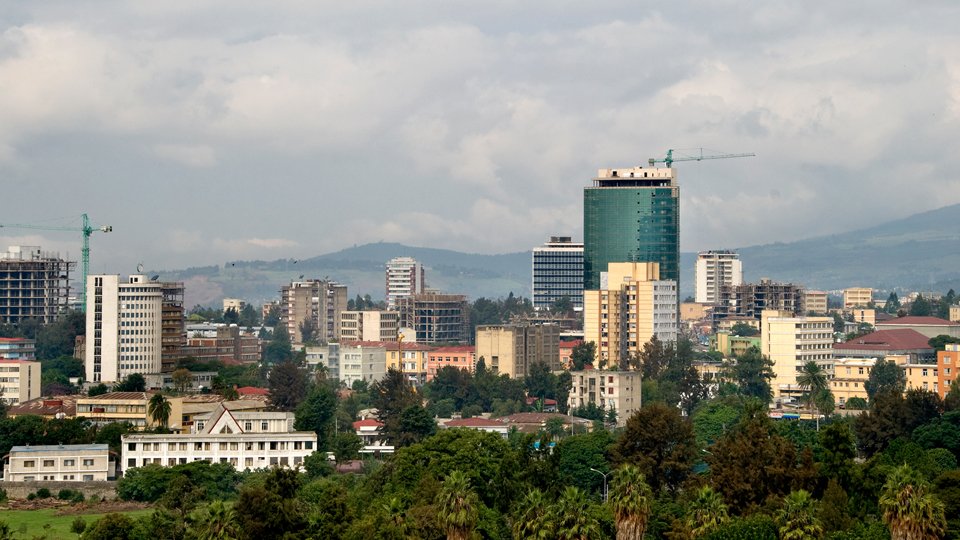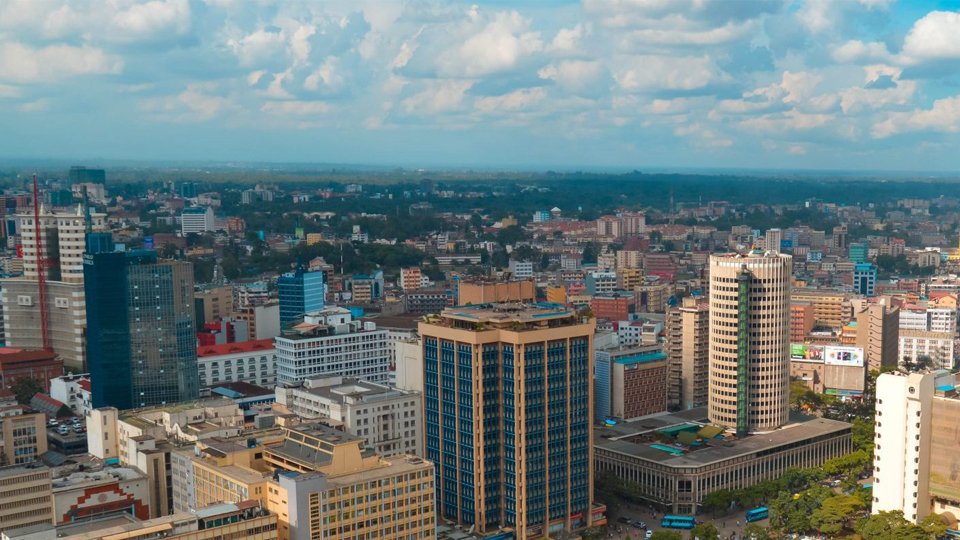Africa
The UK Commits to Its Part in Boosting Trade With Africa
In a show of commitment to trade facilitation between the UK and Africa, the UK Government and the African Continental Free Trade Agreement (AfCFTA) secretariat have signed a Memorandum of Understanding (MoU).
Formally signed by James Duddridge MP, the UK Minister for Africa, and His Excellency Secretary-General of the AfCFTA, Wamkele Mene, at the secretariat’s headquarters in Accra, this MoU formalises the shared commitment.
Mene said: “The AfCFTA is a continent-wide integration project that is built on the intellectual labour of African thinkers, dreamers and negotiators across generations – who imagined and put in place the economic foundation on which a united, integrated and prosperous Africa will be built.”
This is an exciting milestone for Africa, with predictions that the AfCFTA could boost intra-African trade by more than 50%, and drive sustainable industrialisation, employment opportunities and poverty reduction. – Source: B&FT Online
Malawi
Malawi Increases Investment in Innovation Thanks To COVID-19
Despite the negative effects of the COVID-19 pandemic on many areas of the economy, Malawi is one of the world’s low-income countries that is leading the way when it comes to investing in innovation. This is according to the World Intellectual Property Organisation (WIPO)’s Global Innovation Index 2021 report, titled ‘Tracking Innovation Through the COVID Crisis’.
Increased investment in ICT hardware, software, biotechnology and pharmaceuticals saw the biggest growth in investments across the board, because of the role these sectors played in the fight to control coronavirus and help people work through the pandemic.
Ictam Vice President Andrew Kasasi said: “Internet service providers have produced innovations and products which enable individuals to work from home; at the same time, we have noted that banks have also introduced services which allow customers to open accounts without going to the banks physically.
Mr Kasasi expects innovation around achieving sustainable national economic development will continue to grow. – Source: The Times Group
Nigeria
Nigeria Defies Ban to Launch the eNaira Digital Currency
Despite a ban by banks on cryptocurrency transactions, Nigeria – Africa’s largest economy, and Ghana are in advanced stages of launching central bank digital currencies.
Central banks in both countries join a host of global nations exploring the initiative, and are working with foreign financial tech companies to try and get ahead.
Nigeria and Ghana are racing to adopt a central bank digital currency, ahead of Kenya, South Africa, and Rwanda, as they look to ride the wave of popularity of cryptocurrencies in West Africa’s two largest economies. Ayodeji Ebo, head of retail investment at Lagos-based investment firm Chapel Hill Denham, said of the development: “Nigerians are investing in cryptocurrency as a means of store value and to carry their funds outside the shores of the country.
It is hoped that these advances will bolster cross-border trade and make remittance in-flows more efficient, amongst many other advantages. Sceptics say cryptocurrency transactions are vulnerable to fraud and money laundering. – Source: Business Daily
Africa
Online Data Portal Aims to Help Africa Reach Sustainable Development Goals
In a bid to make measuring progress on the UN Sustainable Development Goals (SDGs) in Africa easier, 17 regional UN entities have launched the Africa UN Data for Development Platform.
The first of its kind in Africa, the platform will capture data and evidence from all African countries, as well as highlight statistical progress towards Agenda 2063 – the African Union vision.
“With barely nine years left to achieve the SDGs, making use of common and harmonised data is essential to accelerate progress. Reliable and collective data will allow all actors to make the best possible evidence-based policy action to accelerate the SDGs, strengthen collaboration, avoid unnecessary duplication and make sure that we can address gaps, really leaving no one behind,” said Assistant Secretary-General Ahunna Eziakonwa, Director of the Regional Bureau for Africa at the UN Development Programme.
The platform is open to all parties, including policymakers, private sector, media, and many more. It allows parties to track progress against the 17 SDGs, their 169 targets and their 231 indicators.
The launch supports the “whole-of-UN” approach – to provide one common space where everyone can easily find critical evidence.
Of the platform launch, Dr. Bannet Ndyanabangi, Regional Director and interim of UNFPA East and Southern Africa, said:
“The aim is to reduce the burden on countries in terms of responding to data needs and avoid repeated data requests from various organisations. This portal brings fragmented data from member states into one place, and this information can also be used by UN agencies and other partners.” – Source: UNDP
Ethiopia
Ethiopia RFP Released For 40% Privatisation of State-Owned Ethio Telecom
State-owned telecommunications service provider, Ethio Telecom, is set to become partially privatised in a move by the Ethiopian Government to bring in best practices across operations, technological capabilities, and infrastructure management.
Private investors with an interest in buying the 40% stake must pay a non-refundable fee of USD 20,000 to access the RFP, part of Ethiopia’s Indigenous Economic Reform Program.
With 45 million customers and an annual revenue of around USD 1.3 billion, Ethio Telecom is one of the most profitable companies in the country.
As one of the last countries in the world to privatise the telecom sector, Ethiopia hopes the RFP offers investors valuable growth opportunities. – Source: The East African
Kenya
Strong Trade Ties Hinge on ‘Aggressive’ Negotiations with Kenya
Hoping to deepen trade relationships with India, Britain, Turkey, South Korea, Ethiopia, Indonesia, Israel and Kenya, the United Arab Emirates (UAE) plans to negotiate economic agreements aggressively.
“We really do hope that … at least the first ones are going to be concluded within six months to one year. So we are talking about very aggressive, quick work and quick negotiations,” said the UAE’s Minister of State for Foreign Trade, Thani Al Zeyoudi.
Officials in the UAE predict that non-oil trade with India could increase from USD 40 billion a year to USD 100 billion within five years of a deal being agreed. This rise would go some way to bolstering income following the negative impacts of COVID-19, and increasing economic competition from Saudi Arabia. – Source: Reuters
Democratic Republic of the Congo
Deals with Chinese Investors Work USD 6 Billion Under Review
Amid concerns that mining contracts with foreign investors are not sufficiently beneficial to the Democratic Republic of Congo, its government is reviewing its ‘infrastructure-for-minerals’ deal with Chinese investors, worth USD 6 billion, to make sure they are fair and effective.
The DRC is the world’s largest cobalt producer and Africa’s leading copper miner.
Under the current deal, Sinohydro and China Railway agreed to build roads and hospitals in exchange for a 68% stake in the Sicomines venture. Critics say very few of the agreed infrastructure projects have been completed and more transparency is needed.
With control of approximately 70% of the DRC’s mining sector, the DRC Government is looking for complete transparency on the contract and the kind of finance behind the investment. – Source: Reuters
Report
Africa’s Fastest-Growing Companies to be Ranked for First Time
In May 2022, the Financial Times (FT), in partnership with German data provider Statista, is planning an annual ranking of Africa’s fastest-growing companies.
The report will feature African companies with the strongest revenue growth since 2017. Organisations headquartered on the continent are being asked to send their revenue figures for 2017-2020, and their headcount as at the end of 2020, by January 15, 2022.
Organisations are encouraged to participate with a view to increasing brand awareness amongst potential employees and investors, securing additional media coverage, and using the award logo for marketing purposes.
Find out if you’re eligible, here. – Source: financialtimes.com
Report
New Report Argues for a Green Industrial Revolution
A new report released by McKinsey – Africa’s green manufacturing crossroads: Choices for a low-carbon industrial future – has found that ‘business as usual would take Africa down an unsustainable path’.
Despite currently being a small contributor to the world’s total greenhouse gas (GHG) emissions, if Africa’s manufacturing sector follows the growth trajectory of its western counterparts, it is set to double in size, and with it, its GHG emissions. This would impact GHG emission reduction targets and potentially put the continent at an economic disadvantage.
Africa has options, says the report, for example simple upgrades to vehicles used in mining could cut the industry’s carbon intensity by 40%. McKinsey’s modelling suggests that by 2030, around half of all investments in greenfield carbon neutral manufacturing would have paid for themselves.
Read the full report. Source: mckinsey.com
Report
The World Energy Outlook 2021 Report Reveals Progress Made and Action Needed
The World Energy Outlook 2021 report shows countries have come a long way in terms of clean energy, but progress needs to be much quicker to counter the severe impacts of climate change.
The report predicts a plateau of demand for fossil fuels during the 2030s and falling by 2050. It’s the first time projections have seen a fall in demand for fossil fuels.
The news is not so good for the global average temperature, which is set to continue climbing, to 1.5 degrees Celsius in 2030 and 2.6 degrees Celsius in 2100.
Key actions outlined for the next decade to stabilise the global temperature include: huge progress in clean electrification; investment in clean energy innovation; and focused efforts on preventing leaks from fossil fuel operations.
In developing economies, the COVID-19 pandemic has stalled efforts in improving access to clean fuels and electricity. The report highlights an urgent need for international action to help developing countries chart a path to lower emissions in a time of intense urban expansion and infrastructure development. – Source: iea.org
Report
Rethinking Africa’s Food System Agenda
The COVID-19 pandemic has worsened what was already a continent-wide food security crisis, with an estimated 650 million people lacking access to sufficient food.
A recent study by BCG suggests the answer lies in shifting the focus of food systems transformation from supply to demand. Its research suggests doing so will give those involved in Africa’s food system new roles to play, productivity will increase, and the need for food imports will reduce.
The study outlines five steps for transforming Africa’s food systems: 1) Grow industrial demand for agricultural produce. 2) Use food processing companies as change agents. 3) Diversify Africa’s demand for food. 4) Create a global market for grown-in-Africa agricultural products. 5) Craft demand-led agrarian policies.
Access the full study. – Source: bcg.com



